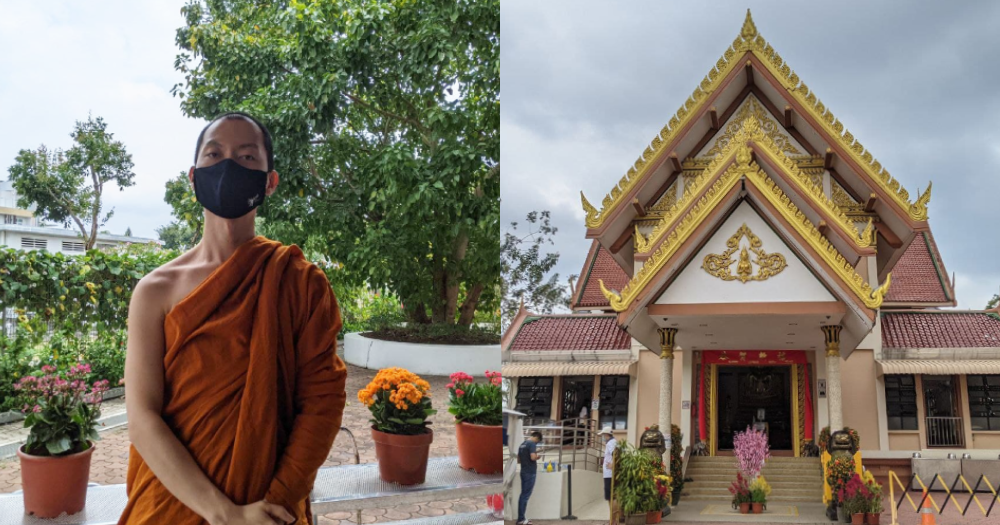PERSPECTIVE: In 2008, Phra Goh was ordained in the Theravada tradition. At the age of 23, he became the youngest Singaporean monk.
After being a monk for the past 13 years, the 36-year-old reflects on this monumental life decision, the numerous rules he lives by, and why he has never regretted choosing this path over secular life.
As told to Tanya Ong
In 2008, I was ordained as a monk at the age of 23 in Malaysia. That was after completing my National Service.
I happen to be the youngest Singaporean monk. Most of the monks in Singapore are above the age of 40.
(How did you end up getting ordained in Malaysia?)
After all the overseas retreats I went through, I realised there were lots of visa and administrative issues with becoming a monk overseas. I decided to go through a local monastery to get ordained.
When I visited Wat Palelai, the monk told me to go to an affiliated temple in Johor because Wat Palelai did not have an ordination hall yet at that time (it was only constructed in 2017).
After spending some time training in Thailand, I returned to Singapore.
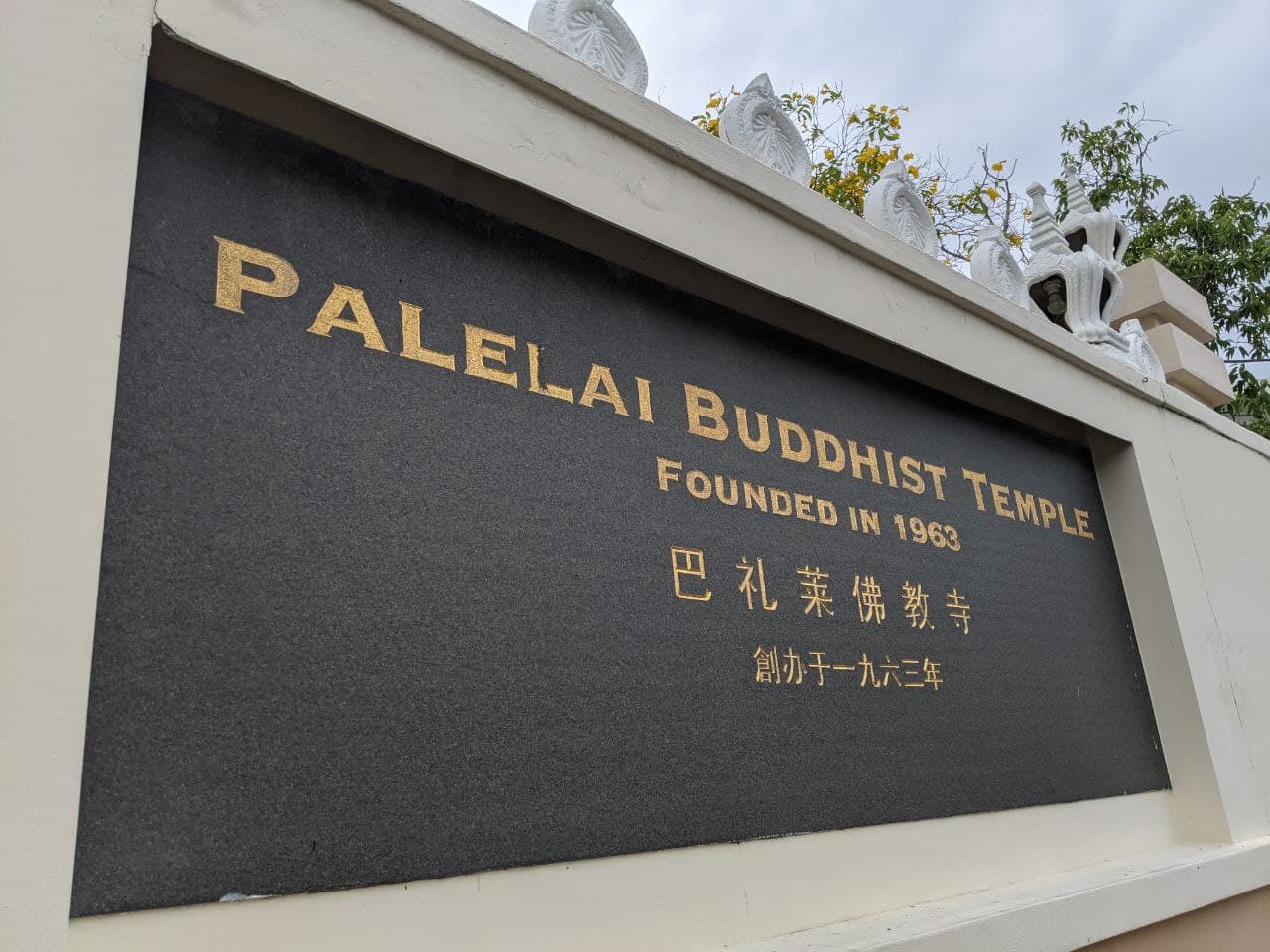 Phra Goh currently resides in Wat Palelai. Photo by Tanya Ong.
Phra Goh currently resides in Wat Palelai. Photo by Tanya Ong.
As a monk, what is your daily routine like?
5am: Wake up
6am: Morning chanting
6:30am: Breakfast
(What happens at breakfast?) For breakfast, we have volunteers who prepare a simple meal for the monks, usually porridge and some dishes.
7am or so: Area cleaning
8:15am: Alms round
There are a few designated places, usually coffee shops or hawker centres, which we have been going to for over 10 years so regular devotees know about them and will wait for us there every day.
It's a different place every day. What happens is we just go to the place and wait outside. There's a group of volunteers who help us to carry the food.
The monks, like myself, will have lunch at around 10:45am or 11am.
(You don't eat after noon?) Our rule is to eat only until 12 noon.
In the afternoon, we have our own free time. Different monks will do different things like do their own practice, their own reading or research.
But at 6pm, there's the evening chanting.
Here, there's no fixed time for me to go to bed. I personally sleep around 11pm every night.
(Are you allowed to leave temple grounds for other purposes?) Yes, sometimes maybe we are invited to give talks outside. We can also go for a walk or for medical check-ups.
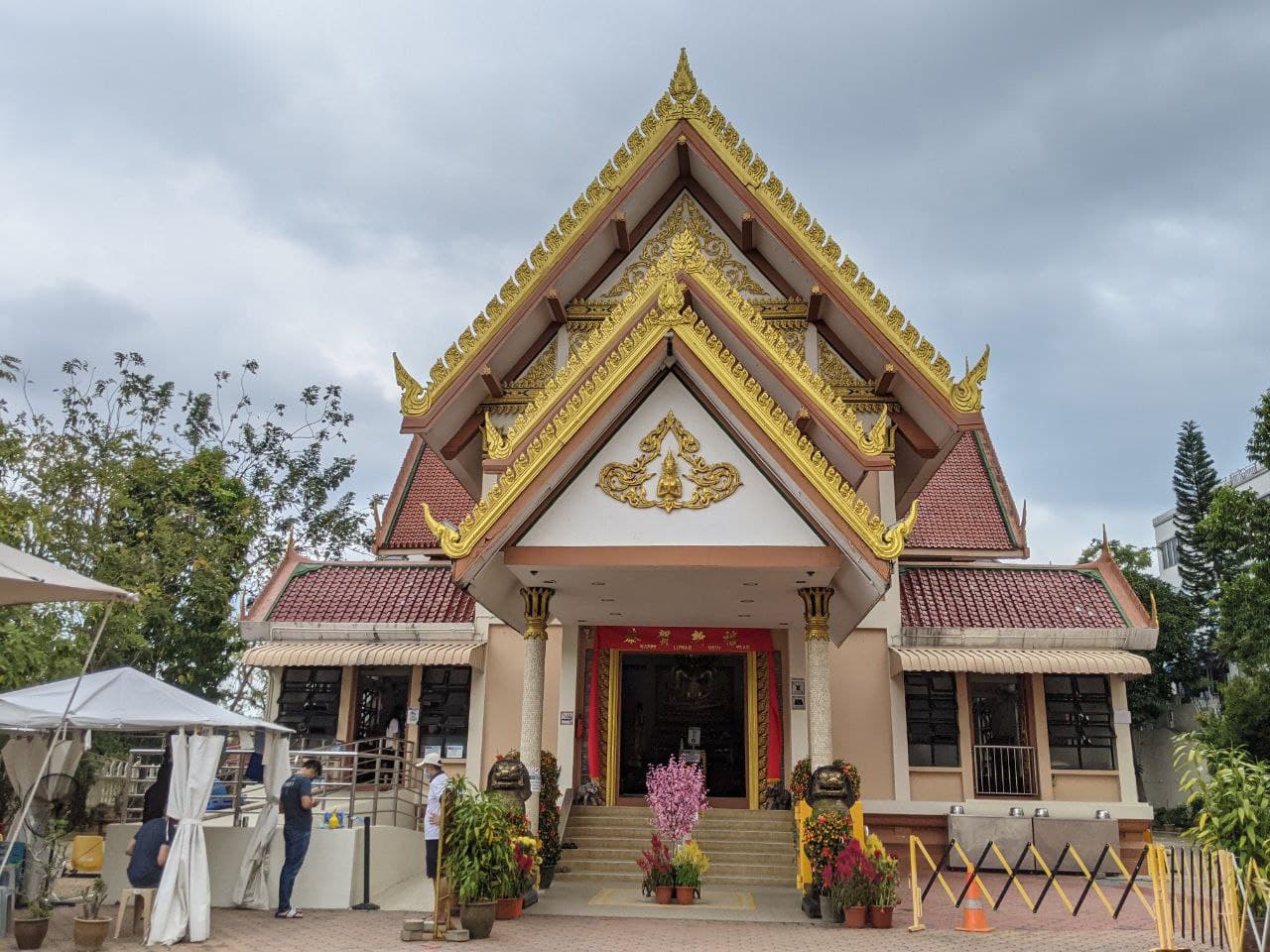 Photo by Tanya Ong.
Photo by Tanya Ong.
What was the most difficult thing you had to adapt to?
Being new to receiving donations, the transition initially felt very awkward.
We don’t call it ‘begging’, we call it ‘waiting for alms round’ because we're not supposed to speak and people would just give food items to us. It feels very weird because all along, we are used to buying our own food. This time, we rely on receiving food.
(Have you ever doubted your decision to become a monk?) I was still young when I became a monk so there wasn't much I had to give up. Besides, this spiritual life is more fruitful to me.
I've never regretted this decision.
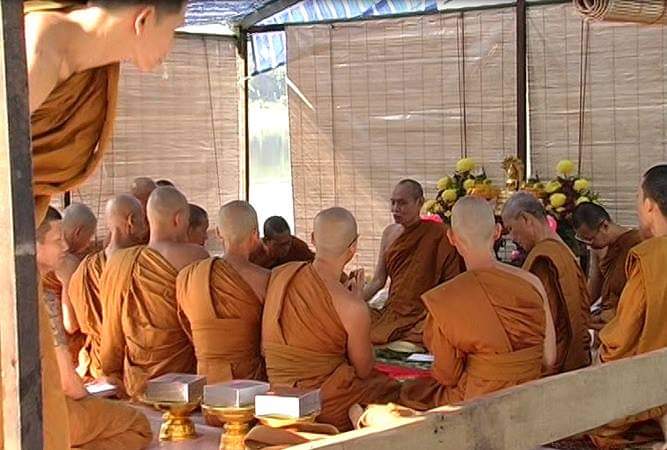 With other newly ordained monks. Photo courtesy of interviewee.
With other newly ordained monks. Photo courtesy of interviewee.
When did you decide to become a monk? Can you share the thought process behind your decision?
During my childhood, my parents went through a period of separation before getting a divorce. The separation got my dad more spiritual and he took part in spiritual activities, including meditation workshops and getting Buddhist books from different temples.
In primary school, I thought: When I grow older, maybe I can become a monk.
I used to be a top-performing student in secondary school. Then (due to these family problems), my grades dropped because I couldn’t focus in school. It made me 'wake up' and question why this was happening. I also started to question what is true success and happiness.
My dad was a businessman and almost went broke because of the economic crisis. This also made me see that the monetary aspect of life can be so fickle. My parents' relationship also broke down, which made me see how transient everything can be.
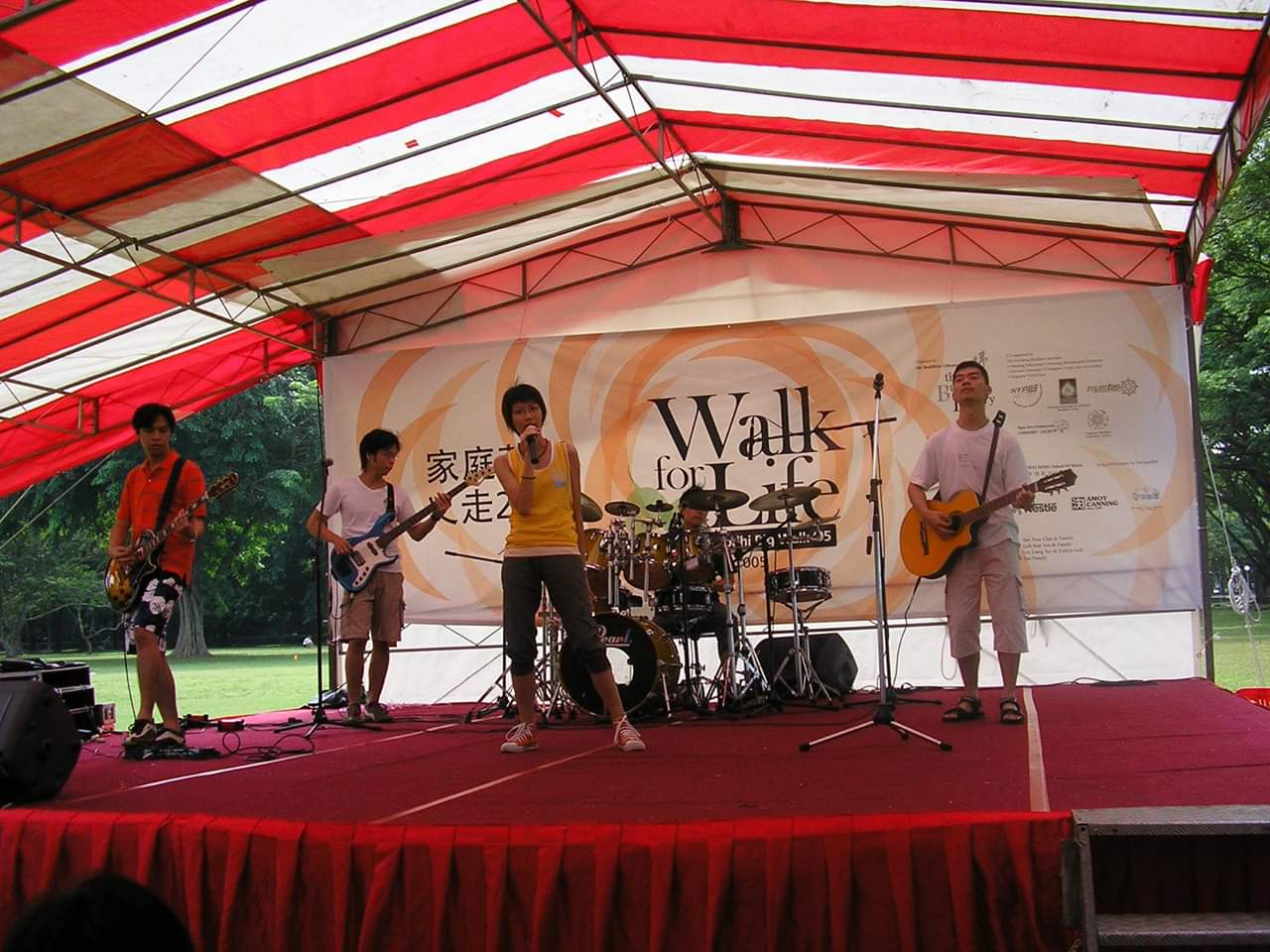 At a music performance for Buddhist events before he was ordained. Photo courtesy of interviewee.
At a music performance for Buddhist events before he was ordained. Photo courtesy of interviewee.
And you felt that choosing this path to become a monk would bring you happiness?
Not exactly. I wanted to consider alternatives in terms of options in life apart from the 'regular' paths, like pursuing a 'successful' career.
How did your parents respond after you told them you wanted to become a monk?
After my O-levels, I told my parents about my plans to become a monk.
My dad was quite okay but my mum was reluctant so it took me quite a number of years, throughout my polytechnic years and even until my second year of national service, to try to persuade her before she eventually agreed.
What made you so sure that this was something you could commit to?
In my Sec 3 or Sec 4 days, I was introduced to some meditation classes so I was quite inspired and benefited a lot from it. I tried to practice it everyday and got more and more interested. After the O-levels, I went for meditation retreats, which might include staying at a temple for like maybe two or three weeks. I went for at least one every year.
That was when I discovered it was a very peaceful life, and I wanted to pursue this way of living.
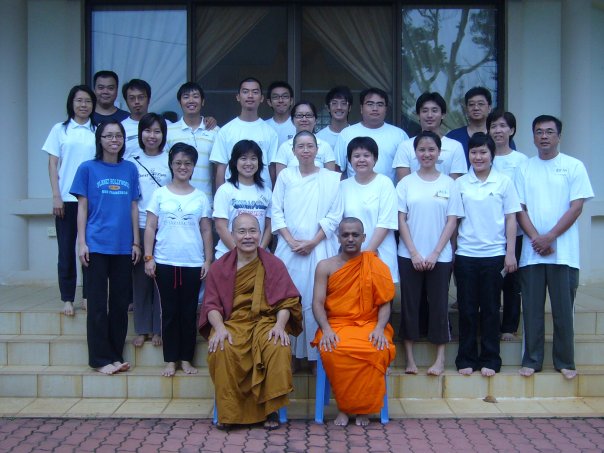 On a meditation retreat. Photo courtesy of interviewee.
On a meditation retreat. Photo courtesy of interviewee.
(But surely going through the retreat as a layperson is different from living as a monk?) Yes, for a layperson, they wouldn’t know the monastic perspective.
Tell us more about what this "monastic perspective" is all about. What was the process of becoming a monk like?
I went through five years of apprentice monkhood training after I was ordained. During this period, we are supposed to learn from our teacher.
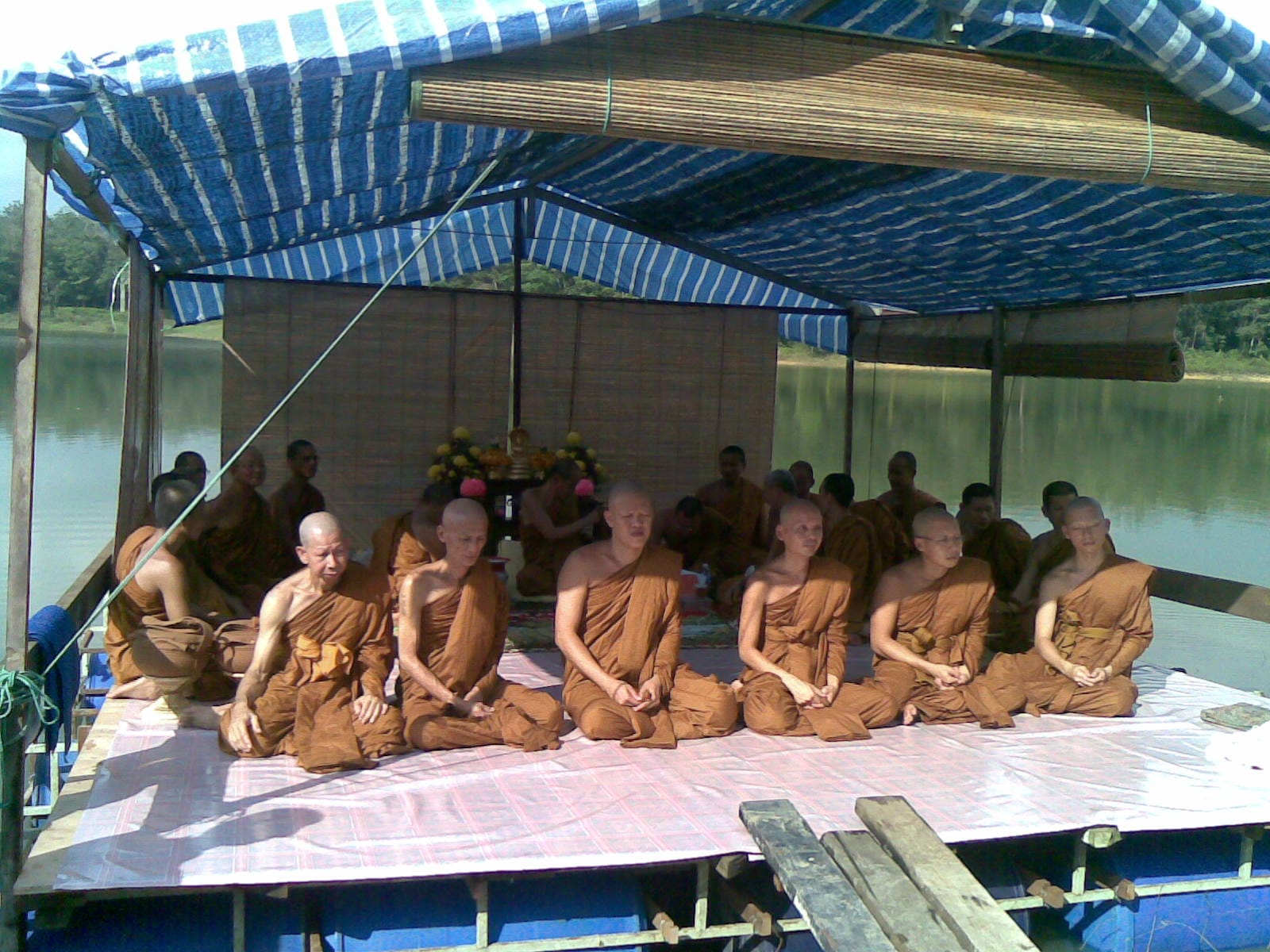 Ordination ceremony on a raft. Photo courtesy of interviewee.
Ordination ceremony on a raft. Photo courtesy of interviewee.
There are rules we had to learn about and follow.
For a layperson, you have five precepts: To avoid killing, stealing, sexual misconduct, telling lies, and intoxicating drinks and drugs.
For a person who wants to stay in a monastery during a retreat, they can extend this to a few more precepts, which includes not taking meals in the afternoon and no entertainment.
For monks, there are also monastic rules. A major one is to not accept money. Other rules are sub-categories of the eight, and there are various categories of consequences depending on the severity of the offence.
For very serious offences, they are disrobed. Slightly less serious offences might require rehabilitation, which involves a temporary removal of a monk's status.
What happened to all of your money when you became a monk? What happens when you need to pay for services like seeing a doctor?
Monks are not supposed have monetary possessions so before I ordained, I gave my bank account book and card to my dad. He basically has all the money (chuckles).
Now, if we need to go for a medical check-up, the temple staff will make arrangements for us. Or if we are seeing a GP, for instance, they might accompany us and pay in cash.
There is a monastic fund, which we generally can use for four things: clothes, food, shelter (anything to do with maintenance of this temple) and medicine. The money comes from devotees' donations.
(So you don't really have personal belongings? What about the phone that you use to contact me?) My phone was given to me by my mother.
For basic necessities, like toiletries, these are usually purchased for us by the temple.
(What kinds of things are you allowed to accept/ keep?) Initially I didn't have a phone, but it was inconvenient to get in touch with me if people wish to invite me for talks, for instance. We have to reflect whether is it useful for the spiritual life.
Let’s say somebody wants to offer me, say a Mercedes Benz, then definitely no (hahaha).
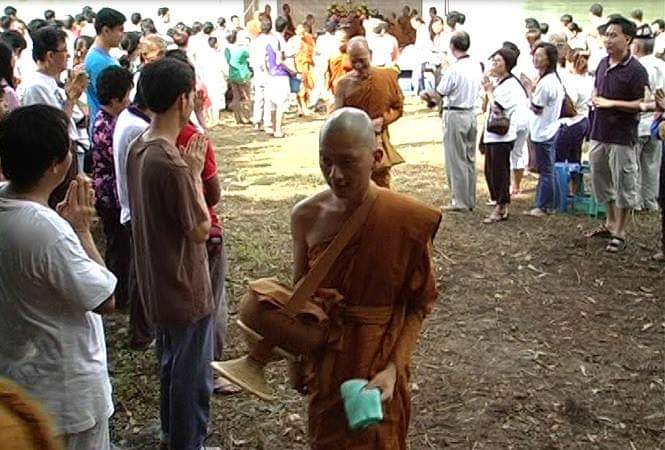 Photo courtesy of interviewee.
Photo courtesy of interviewee.
How often do you still keep in touch with your friends and family?
We will occasionally meet up if there's a function. For instance, my friends might invite me for their wedding if they get married.
Some of them might be actively involved in Buddhist organisations so they might invite me to give talks and stuff like that.
For my parents — my mum, she will come to see me, like, every week. She comes during our lunchtime and will bring me a bit of food.
I usually meet my brother over Chinese New Year.
What kind of growth do you hope to see in yourself over time and how do you think it relates to conventional ideas of 'success' in Singapore?
All this while, I think my progress has been quite consistent. Of course, everyone has their own expectations of how they want to be, but I would say [for me], it's still a work-in-progress.
There are people who, for instance, want to perform very well when it comes to KPIs. They might be a top-earner, but they are still full of greed and anger.
They might pursue everything in their material wealth and because of the lack of foundation of spirituality, when they are older, they start to ask: What is the meaning of life?
Then the other extreme is like for ourselves as monks. We pursue a religious life and kind of just ignore the material aspects.
Of course, [for a layperson], they can pursue their career and be 'successful' and not neglect spiritual growth. But it can be very tough to juggle both sides.
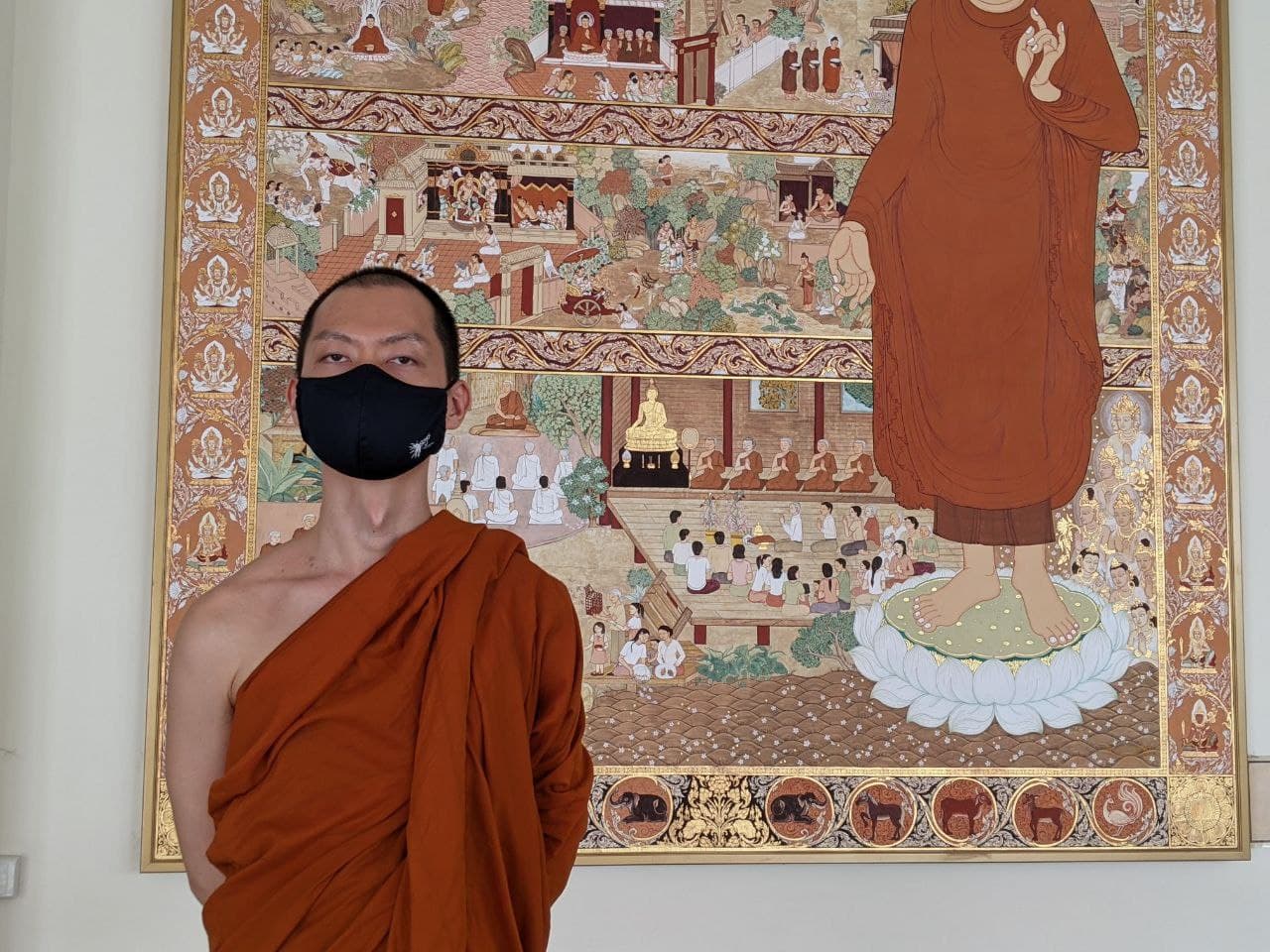 Photo by Tanya Ong.
Photo by Tanya Ong.
(So you feel that the best route for your spiritual growth is to become a monk?) At that point of time, that was my calling.
So if someone were to ask you: "What do you think is the meaning of life?" Do you have an answer to that?
This is a very profound question. In fact, I find it’s a trick question. Let’s say I take on Buddhist philosophy, then everything in life is an illusion.
The whole idea is that, whatever we do, we can reduce greed and hatred and promote goodness. That would be of real value, so it doesn't matter what you do in life as long as you have all these.
Top photo by Mothership. Quotes were edited for grammar and clarity.
If you like what you read, follow us on Facebook, Instagram, Twitter and Telegram to get the latest updates.
